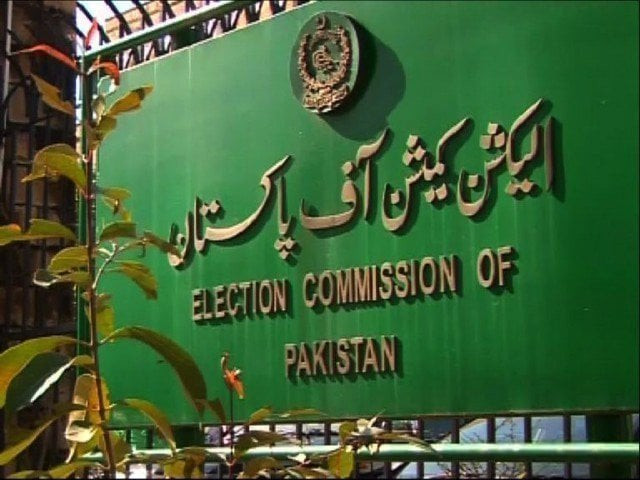Citizens demand ‘NOTA’ option as elections looms
Legal experts believe inclusion of NOTA option does not require any new legislation

PHOTO: FILE
Though most of these long-awaited demands required long-term planning and thousands of billions of rupees in resources, legal experts believe the inclusion of the NOTA option in ballot papers was still possible as it does not require new legislation or additional resources.
Constitutional lawyer and legal expert Azhar Siddique told The Express Tribune that Article 218 and 220 of the Constitution of Pakistan empower the Election Commission of Pakistan (ECP) to include the NOTA option in ballot papers or make other such amendments.
In Jamhoori Wattan Party (JWP) case, he highlighted that the Supreme Court of Pakistan (SCP) has also given observation that the commission should consider the NOTA option in ballot papers. Siddique underlined that all the political parties have ill intentions otherwise the NOTA option would have been included in ballot papers. “The electoral body is also showing negligence by overlooking this legitimate demand of the masses,” he said, adding “similar options were available in many other countries including neighbouring India.”
SHC issues notice to ECP, others on plea to add NOTA in ballot papers
In 2013, the Indian apex court upheld voters’ right to reject all candidates contesting elections, saying it would go a long way in cleansing the political system of the country. The court directed the Election Commission of India (ECI) to have an option of NOTA on the electronic voting machines (EVMs) and ballot papers. The commission subsequently included the same at the end of the candidates' list in EVMs and ballot papers.
The NOTA option was first used in the assembly elections held in five states in 2013. According to Hindustan Times, over 1.5 million people exercised the option in the state's polls. Though the figure was lower than 1.5% of the total voters, nearly half-a-million people opted for NOTA in Delhi; 350,000 in Chhattisgarh, 590,000 in Madhya Pradesh and 560,000 in Rajasthan.
Indian voters have a similar option available before the NOTA. They cast negative votes by writing their names in a register and use a separate ballot paper. However, this provision deemed was unconstitutional by the Indian apex court as it did not protect the identity of the voter.
Several other developed and developing countries, like Colombia, Ukraine, Brazil, Bangladesh, Finland, Spain, Sweden, Chile, France, Belgium and Greece, also allow their voters to cast NOTA votes or express their rejection in some form. The US also allows it in a few cases. The state of Texas in the US allows the provision since 1975. The option, however, has faced opposition there.
In Spain, a blank ballot is recognised as a NOTA vote. In Norway, it is mandatory to present voters with blank ballots in addition to all of the approved parties and election lists.
In the parliamentary election of 2013, 12,874 votes, which is 0.45% of the total votes given, were blank. Similarly, it is possible to cast NOTA votes in Canada by attending the polling station and formally ‘declining to vote’. These declined votes are actually counted and become part of the electoral record.
The ECP had announced to introduce a blank box in the ballot papers for NOTA in the 2013 General Election. The commission had also sent a summary to the government for formal approval through legislation, but the both ruling and opposition parties turned down the proposal and the commission shelved the case instead of moving the apex court which was already in its favour.
Published in The Express Tribune, June 21st, 2018.


















COMMENTS
Comments are moderated and generally will be posted if they are on-topic and not abusive.
For more information, please see our Comments FAQ